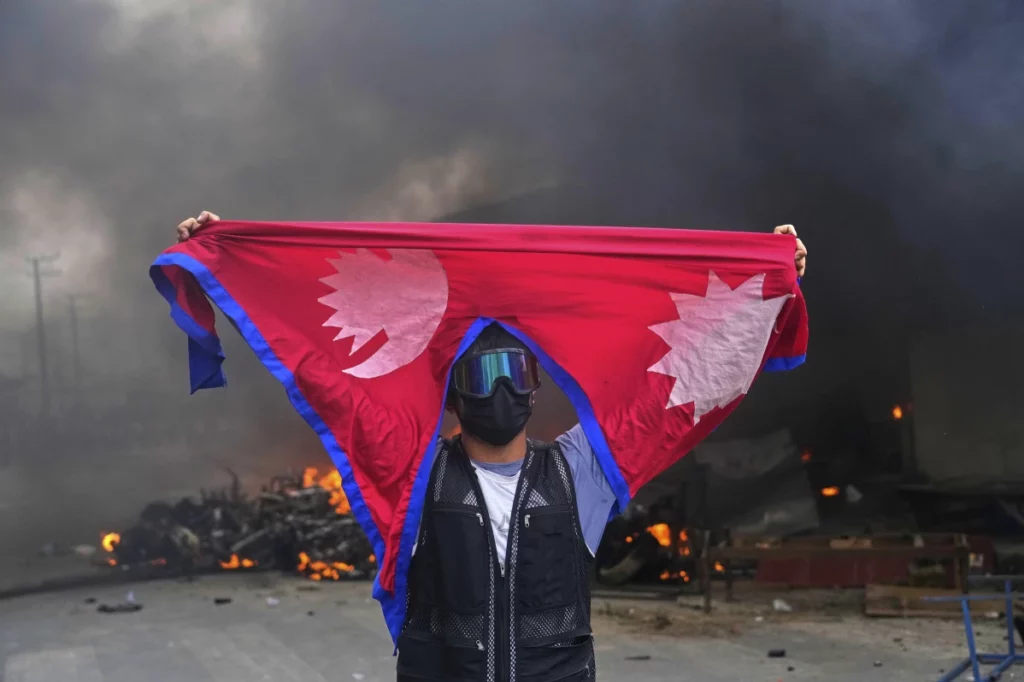Nepal was thrust into political chaos Tuesday after Prime Minister K.P. Sharma Oli resigned amid violent nationwide protests that left at least 22 people dead, hundreds wounded, and parts of parliament in flames. The collapse comes amid a generational revolt that began over a sweeping social media ban but quickly morphed into a broader indictment of corruption and political dysfunction in the Himalayan republic.
The crisis began last week when Oli’s government abruptly blocked 26 platforms—including Facebook, Instagram, YouTube, WhatsApp, and X—citing non-compliance with local registration rules. The move, framed as a crackdown on misinformation and fraud, landed in a country where nearly half the population are active social media users. Rights groups blasted it as censorship, while Nepal’s restless Gen Z—already fed up with endemic corruption and elite privilege—took to the streets.
Anger had been simmering for months, stoked by bribery scandals, criminal charges against former premiers, and viral TikTok clips of politicians’ children flaunting wealth in a nation with a $1,300 per-capita income.
On Monday, Kathmandu and other cities erupted. Thousands of students marched on parliament, chanting “Shut down corruption, not social media.” Security forces fired tear gas, rubber bullets—and live rounds. Seventeen people were killed in the capital alone. Amnesty International called the crackdown “unlawful,” while the U.N. decried “disproportionate force.”
By evening, Home Minister Ramesh Lekhak resigned, taking “moral responsibility” for the deaths. Agriculture and Water Supply ministers soon followed. But Oli dug in, dismissing demonstrators as “Gen Z troublemakers.”
The defiance backfired. Nepali Congress ministers walked out of an emergency cabinet meeting, deepening fractures inside the ruling coalition with Oli’s Communist Party of Nepal (UML). International pressure mounted. By Tuesday, the government restored access to the banned platforms—too late to quell the fury.
Protesters stormed parliament, torching offices of both major parties. Oli’s residence was set ablaze. Local media reported ministers were assaulted, some airlifted to safety by the military. Kathmandu’s airport shut down as smoke from nearby fires choked the city.
Faced with an ungovernable crisis and demands from opposition leaders, Oli submitted his resignation to President Ramchandra Paudel. “In view of the adverse situation in the country, I have resigned effective today,” he wrote.
Oli’s departure—the 14th government collapse since Nepal’s monarchy fell in 2008—leaves a power vacuum in a country struggling with weak institutions and economic stagnation. The Gen Z movement shows no sign of retreat. Protesters demand systemic reform, not just another reshuffled cabinet.
Kathmandu’s 35-year-old mayor Balendra Shah, a rapper-turned-politician, has openly sided with demonstrators, raising speculation about a new generation of leadership.
(YWN World Headquarters – NYC)











